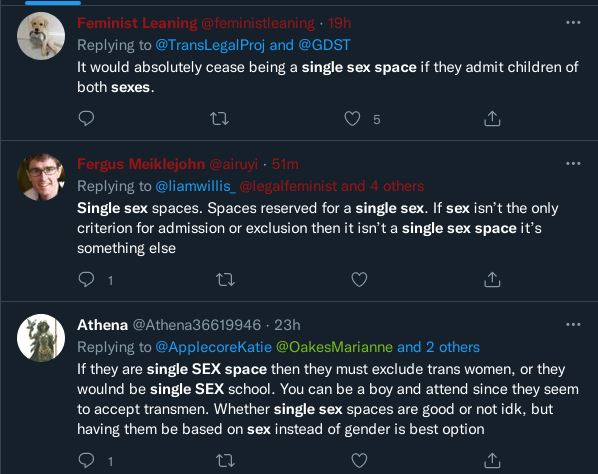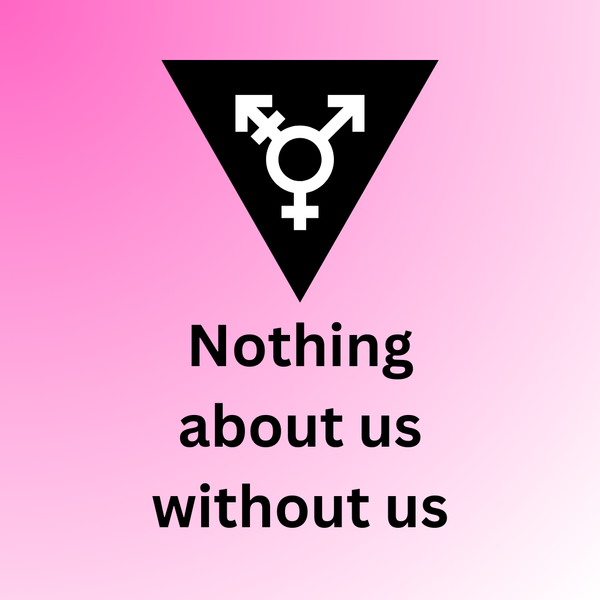Girls Day School Trust bans transgender girls as pupils, continues to hire male staff
Content note: This piece will reference cases of sexual abuse in schools by staff. No explicit details will be included.

Content note: This piece will reference cases of sexual abuse in schools by staff. No explicit details will be included.
Girls Day School Trust (GDST), a group of girls’ schools across the UK has recently made headlines for its new gender identity policy explicitly banning transgender girls who are “legally male”. The policy has been defended by some as protecting a “single sex space”, however, it is notable that GDST accepts both male and female staff in its schools at all levels (for example several members of staff at GDST’s Birkenhead High School Academy appear to be men according to their public list of staff), making them definitionally mixed spaces despite a single sex admission policy for children in their care.

Sexual abuse of school students by teachers is relatively common, with a 2014 BBC investigation finding 959 cases of complaints over teachers’ sexual behaviour towards students across 137 local authorities. I contacted GDST to ask whether they felt that their schools could be considered single sex spaces and whether they felt that adult male teachers might pose more of a potential threat to girls in their care than trans girl pupils, they did not respond to any of the specific questions I asked, but provided a statement by CEO Cheryl Giovanni, which I have reproduced in full at the end of the article but claims that excluding most transgender girls is necessary in order to protect the schools’ “status” as single sex.
While there are exceptions provided in the Equality Act 2010 to prohibitions on gender reassignment discrimination (unequal treatment on the basis of trans status, essentially), these are not intended to serve as a basis for prohibiting all transgender women from women only services and are only to be applied where they can be shown to be a “proportionate means of achieving a legitimate aim”. While it is very unlikely that any transgender girl would be so desperate to attend a school with openly discriminatory policies as to take this issue to court, GDST’s claim to merely be following the law seems questionable.
“If a service provider provides single- or separate sex services for women and men, or provides services differently to women and men, they should treat transsexual people according to the gender role in which they present. However, the Act does permit the service provider to provide a different service or exclude a person from the service who is proposing to undergo, is undergoing or who has undergone gender reassignment. This will only be lawful where the exclusion is a proportionate means of achieving a legitimate [aim].” — EHRC: Services, public functions and associations — Statutory Code of Practice
Edit 2022/01/04: LGBTTeacherUK on Twitter has pointed out to me that I have quoted the wrong section of the Equality Act 2010 here. Both she and Trans Legal Project provide a much more informed analysis of the legal situation, which I will embed below, but briefly (and with the caveat that I am not a lawyer), while the “legitimate means of achieving a proportionate aim” test may not apply here, there’s no necessary legal requirement that a girls’ school must blanket exclude all transgender girls.


While researching for this piece, I uncovered evidence that “gender critical” campaigners have been seeking to influence policy at GDST for the last several years. In 2019, anti-trans activist Maya Forstater contacted GDST CEO Cheryl Giovanni and South Hampstead High School (A GDST school) head Vicky Bingham on Twitter seeking a conversation via DM as a former pupil of one of GDST’s schools, at time of writing, both Giovanni and Bingham continue to follow Forstater on Twitter, with Bingham also following Forstater’s organisation Sex Matters. Bingham also follows a host of ultraconservatives, including Andy Ngo and Douglas Murray. I asked GDST whether this lobbying by a prominent GC activist was related to the new policy they have announced, at time of writing I have received no response on this point.
Below is the statement sent to me by GDST’s email contact:
“It is important to state first and foremost that the underlying principle of our policy is to offer a supportive educational environment to those students who are exploring their gender identity or in the process of transitioning. Our trans students are welcome in our schools and our policy primarily sets out ways in which schools can support them.
A trans student already at our school can remain at the school for as long as they wish to do so. Young people exploring their gender identity need space and time to make decisions, free of pressure. The school has a responsibility to support a trans pupil and ensure measures are put in place to enable them to remain at their school. We will work together with them to make the best choices for their long-term wellbeing.
GDST schools are able to operate a single-sex admissions policy, without breaching the Equality Act 2010 on the basis of an exemption relating to biological sex. Under current laws and guidance, the GDST believes that an admissions policy based on gender identity rather than the legal sex recorded on a student’s birth certificate could jeopardise the status of GDST schools as single-sex schools under the act. We will continue to monitor the legal interpretation of this exemption.” — Cheryl Giovannoni, CEO, GDST


